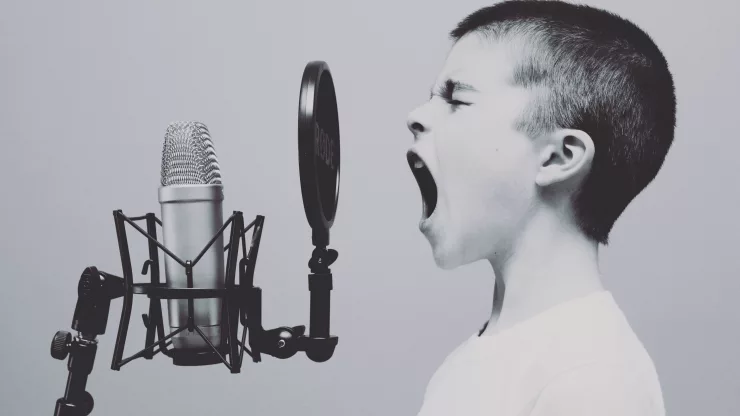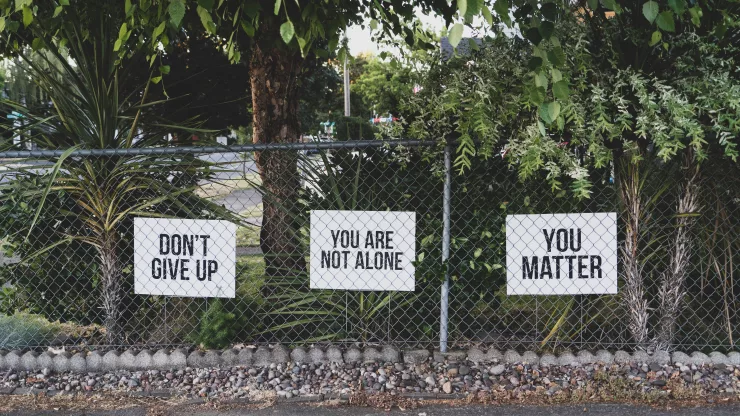Music has the power to transport us to a different time and place, evoke emotions, spark memories, and even help us heal.
The impact of music on mental well-being is a topic that has been explored extensively in recent years, with numerous studies highlighting the positive effects of music on the brain and mood.
In this article, we’ll delve into the science behind the magic of music and how it can boost our mental wellness.
Jump to Section
The Power of Music on Mental Well-Being
Mental well-being is crucial for a fulfilling and healthy life. It’s the state of being able to cope with the normal stresses of life, work productively, and contribute to your community.
Music has been shown to have a positive impact on mental well-being by evoking emotions, improving mood, reducing anxiety, and even helping with pain management.
This article will explore how music therapy and other techniques can be used to enhance mental wellness.
What is Music Therapy?
Music therapy is a clinical intervention that uses music as a therapeutic tool to help individuals improve their mental, physical, emotional, and social well-being.
It differs from recreational music in that it’s a structured and research-based approach to treatment.
Music therapists are trained professionals who use music to address specific goals and needs of their clients.
The use of music for therapeutic purposes has been documented throughout history, with evidence of music being used in healing rituals in ancient Greece, Egypt, and other cultures. In the United States, music therapy became a recognized profession in the 1940s, and today, it’s widely used in hospitals, schools, and community-based settings.
The Science behind Music and Mental Health
Music has the power to affect our brains and trigger emotions in ways that other stimuli cannot. When we listen to music, our brains release dopamine, a neurotransmitter that’s associated with pleasure and reward.
This release of dopamine is what makes us feel good when we listen to our favorite songs.
Research studies have shown that music can have a positive impact on mental well-being by reducing stress, anxiety, and depression.
In one study, participants who listened to music had lower levels of cortisol, a stress hormone, than those who didn’t listen to music.
In another study, patients with depression who listened to music as part of their treatment experienced significant reductions in symptoms compared to those who received therapy without music.
Dopamine and Music
Dopamine is a neurotransmitter that plays a crucial role in our mood and behavior. It’s responsible for feelings of pleasure, motivation, and reward.
When we listen to music, our brains release dopamine, which makes us feel good. This release of dopamine is what makes us want to listen to our favorite songs on repeat.
The relationship between dopamine and mental well-being is complex, but it’s clear that music can play a significant role in boosting our mood and overall mental health. By understanding the science behind the magic of music, we can use it to our advantage to improve our mental well-being.
Music as a Coping Mechanism
One of the most significant benefits of music is its ability to help us cope with stress and difficult emotions. Listening to music can help us regulate our emotions, reduce anxiety and depression symptoms, and even improve our quality of life.
Studies have shown that music therapy can be an effective treatment for individuals with PTSD, anxiety, and depression. In one study, veterans with PTSD who received music therapy reported significant reductions in symptoms compared to those who received traditional therapy alone.
Music Therapy for PTSD
PTSD is a mental health condition that can develop after experiencing or witnessing a traumatic event.
It’s characterized by symptoms such as flashbacks, nightmares, and intense anxiety.
Music therapy can be an effective treatment for individuals with PTSD because it helps with trauma processing and emotional regulation.
Research studies have shown that music therapy can significantly reduce symptoms of PTSD, such as hyperarousal and avoidance behaviors. In one study, veterans with PTSD who received music therapy reported significant reductions in symptoms compared to those who received standard care.
Creating Playlists for Mental Wellness
Creating personalized playlists can be a therapeutic tool for improving mental wellness. By selecting songs that evoke positive emotions, we can use music to regulate our moods and reduce stress and anxiety.
There are several tips to keep in mind when creating a playlist for mental wellness:
- Select songs that evoke positive emotions, such as happiness, calmness, or motivation.
- Choose songs that have personal meaning or significance to you.
- Organize the playlist by the mood or emotion you want to evoke.
- Listen to the playlist intentionally, focusing on the emotions and feelings you want to experience.
Incorporating Music into Mental Health Treatment
Music can be used as a complementary therapy to traditional forms of treatment, such as psychotherapy or medication. Music therapy techniques can be used in individual or group settings to help individuals improve their mental well-being.
Some techniques used in music therapy include:
Techniques for Music Therapy
- Improvisation: creating music spontaneously, without planning or preparation.
- Lyric Analysis: examining the meaning and significance of song lyrics.
- Songwriting: creating and performing original songs.
- Relaxation Techniques: using music to induce relaxation and reduce stress and anxiety.
Music and Physical Wellness
In addition to its mental wellness benefits, music can also improve physical health and well-being. Studies have shown that music can be an effective tool for pain management, reducing blood pressure, and improving sleep quality.
Summary
Music has the power to transport us, evoke emotions, and even help us heal. This article has explored the science behind the magic of music and how it can boost our mental well-being.
From music therapy to creating personalized playlists, there are many ways to incorporate music into our daily routines for better mental and physical health.
Frequently Asked Questions
How does music affect the brain?
When we listen to music, our brains release dopamine, a neurotransmitter associated with pleasure and reward. This release of dopamine is what makes us feel good when we listen to our favorite songs.
Music can also affect the brain’s limbic system, which is responsible for emotions and memory.
What is music therapy, and how does it work?
Music therapy is a clinical intervention that uses music as a therapeutic tool to help individuals improve their mental, physical, emotional, and social well-being.
Music therapists are trained professionals who use music to address specific goals and needs of their clients.
Music therapy can be used in individual or group settings and can involve techniques such as improvisation, lyric analysis, and relaxation techniques.
Can music help with anxiety and depression?
Yes, studies have shown that music can be an effective tool for reducing symptoms of anxiety and depression. Music therapy has been shown to be effective in treating individuals with depression and anxiety disorders.
What are the benefits of creating personalized playlists?
Creating personalized playlists can be a therapeutic tool for improving mental wellness. By selecting songs that evoke positive emotions, we can enhance our mood and overall well-being.

With a deep passion for personal development, Ben has dedicated his career to inspiring and guiding others on their journey towards self-improvement.
His love for learning and sharing knowledge about personal growth strategies, mindfulness, and goal-setting principles has led him to create My Virtual Life Coach.
Contact Ben at [email protected] for assistance.




